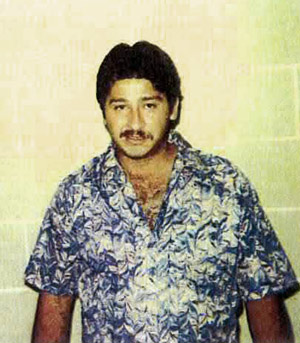ACLU Says Prosecutorial Misconduct Led to Capital Conviction
(Updated 10/20/2011)
Due Process Demands Texas Man Who Maintains Innocence Be Given New Trial
FOR IMMEDIATE RELEASE
CONTACT: (212) 549-2666; media@aclu.org
AUSTIN, Texas – The American Civil Liberties Union today argued before the Texas Court of Criminal Appeals that a man should be given a new trial because serious misconduct by a special prosecutor led to his capital conviction despite grave questions about his guilt.
Manuel Velez was sentenced to death in 2005 for the murder of a one-year-old boy based on the false testimony of his live-in girlfriend and mother of the child. The woman, Acela Moreno, failed to admit she had pleaded guilty to inflicting her son with head injuries the day he died. Medical experts made clear these injuries were consistent with those that led to the child’s death. At Velez’s trial, Moreno testified she pleaded guilty not to committing violence against the child but rather to having failed to alert authorities that Velez had allegedly been hurting the child.
The special prosecutor in the case negotiated the plea deal with Moreno and so knew she was covering up her own abuse of the child, according to Brian Stull, senior staff attorney for the ACLU Capital Punishment Project, who presented arguments in the case. Indeed, the special prosecutor told the judge presiding at Moreno’s plea that she had injured the child. But at Velez’s trial, he did nothing to set the record straight. He then presented Moreno’s false testimony as fact during closing arguments, repeating that she was guilty only of having failed to alert authorities.
“The Constitution requires that our judicial system be fundamentally fair, and this case was riddled with unfairness,” said Stull. “We should never be comfortable with sending a man to his death when we know that the state has relied on falsehood to convict him. In cases where the irreversible sanction of the death penalty is involved, it is imperative that due process be fully upheld to ensure that innocent people aren’t executed.”
Velez has maintained his innocence, there are no eyewitnesses accusing him of the crime and no forensic evidence links him to the murder.
Last week, three of the nation’s pre-eminent legal ethicists filed a friend-of-the-court brief in support of the ACLU’s argument that Velez should be granted a new trial. The brief, filed on behalf of Robert P. Schuwerk, a professor at the University of Houston Law Center, Lillian B. Hardwick, a regular consultant and expert witness on legal and judicial ethics in Texas, and Monroe H. Freedman, a professor and former dean at Hofstra University law school who is known as a pioneer in the field of legal ethics, says the conviction of Velez is a miscarriage of justice.
“There is no sugar coating what occurred here,” the brief reads. “Both the defendant’s conviction and his sentence of death are derived from a pervasive course of misconduct on the part of the special prosecutor.”
More information about Velez’s case is available online at:



